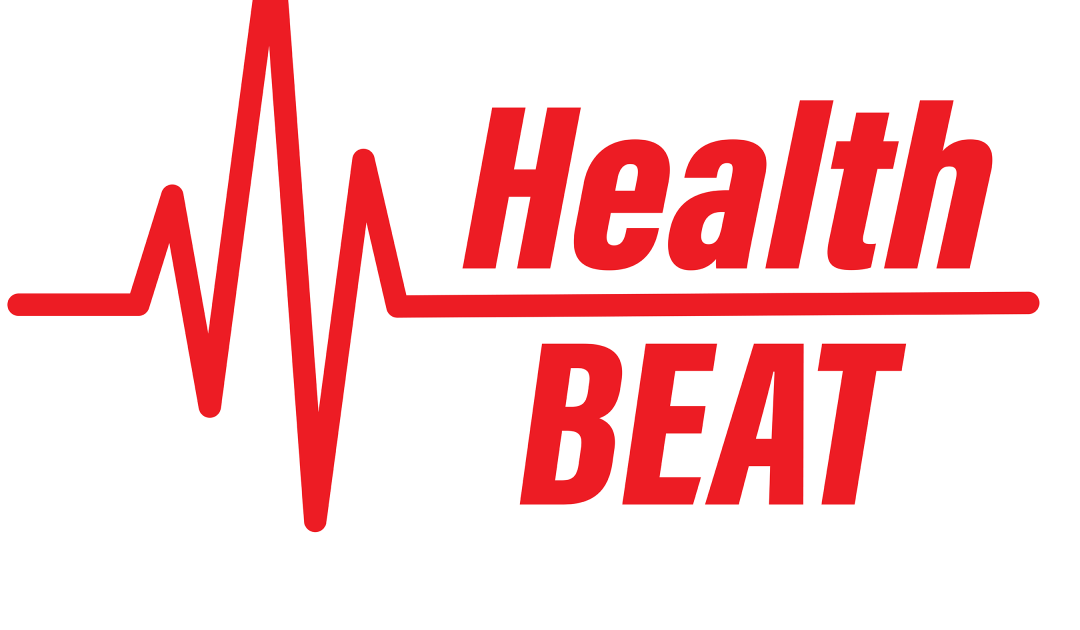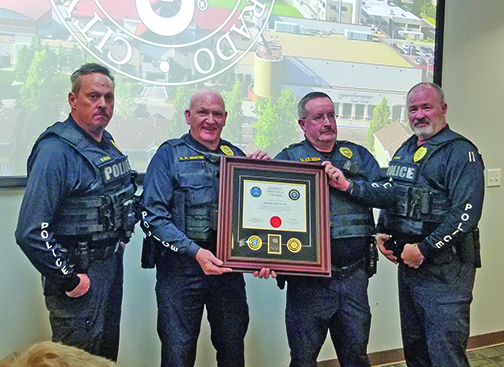
by Glendale Sports Center | May 20, 2022 | Glendale City News
by Corinne Joy Brown, Aquatics Instructor, YMCA Metropolitan Denver
 As an aquatics instructor at the YMCA of Metropolitan Denver, I can attest that no two classes are alike — which is partly what makes the aquatics curriculum so popular.
As an aquatics instructor at the YMCA of Metropolitan Denver, I can attest that no two classes are alike — which is partly what makes the aquatics curriculum so popular.
Ironically, I avoided the water most of my life — believing that swimming laps was boring. I can attest that, after five years of attending aquatics classes and now teaching, nothing is more fun than aquatics! Finding myself in love with water exercise at 70 is the blessing of my mature adult life.
For over 20 years I have made my living as a writer, and I recently began to see similarities between writing and teaching aquatics. Below are some lessons that transcend from writing to teaching:
Lesson One: Come As You Are
An author shows up as transparent as possible, bringing every experience we’ve ever had to that first blank page. I feel the same way when I stand in front of aquatics students. In our class, there’s no judgment. Each attendee is the sum of their own experiences, as is the instructor, all coming together in that great equalizer: the water. As in writing literature, the more I am myself in class, the more I seem to connect. Over time, I have begun to learn more about each student and their own stories as well; characters in a one-hour, life-changing aquatic challenge.
Lesson Two: Be Observant
A good writer notices things, picks up on details, and keeps a running file on the environment including facial expressions and atmosphere. A good aquatics teacher notices those things too, assessing by-the-minute if the participants are engaged, confused or distracted, and then acts on them.
Lesson Three: Structure
A good book has a beginning, middle, and end. So does a good aquatics class, from the cardio-enhancing warm-up through the cool down. It also depends on a consistent sense of structure, allowing enough time for each phase. Like a good story, you want to keep your audience wanting more and throw in some surprises. And like any satisfying ending, reaching a sense of joy by the end of every class.
Lesson Four:
Start With An Introduction
I make a point to introduce new people to the class and welcome them. Like a preface to a book, I use the beginning of class to set the stage for the day’s direction. These moments help create a sense of purpose, allow me to see who is in the water, and assess my workout strategy.
Lesson Five: Create A Sense Of
Community And Connection
A good writer and aquatics instructor targets their readers/swimmers and stays in touch in order to create a community. Students show up for more than just a workout. What’s good for the body is good for the soul, and each one of our YMCA aquatics classes offers a safe environment and a chance to be in the moment, feel connected, move, and experience a sense of release — not to mention the camaraderie that naturally ensues.
The Y plays a vital role in the community, serving as a safe, welcoming, and inclusive third place, a place beyond work and home.
I recently asked my class what they loved most about aquatics. The most recurring answer was “It just feels so good.” That sentence contains it all. In our classes, personal growth is evident and measurable in terms of increased strength and flexibility, as well as visible confidence and a sense of well-being. The YMCA Metropolitan Denver offers private, semi-private, and group swim lessons for individuals of all ages. Visit www.denverymca.org for more information.

by Glendale Sports Center | Apr 21, 2022 | Glendale City News
by Amanda-Scates Preisinger, MPH
Senior Director of Health and Well-Being, YMCA of Metro Denver

Mental health is how we think, feel, and act. Throughout our lives, our mental health is influenced by the environments around us. When these environments are stressful, we try to cope — sometimes in ways that help and sometimes in ways that harm.
Over the past two years, we have all had to live in stressful environments with COVID-19 and social isolation. The impact on our youth has been particularly staggering with a recent CDC-published study indicating that more than 1 in 3 high school students experienced poor mental health during the pandemic. Now more than ever, we all need a safe and healthy environment that supports our mental health, an environment where the community spends time together, has fun and feels connected to one another.
We at the YMCA of Metro Denver are committed to providing that welcoming and transformative home away from home that we all need right now. As we recognize Mental Health Awareness Month, your local Y is offering a number of workshops and experiences to promote mental health in our community. From mindful yoga and stress management to wellness seminars and fly fishing, there are opportunities for everyone to care for their spirit, mind, and body. Our team members are committed to supporting the mental health of every person we connect with.
While our role at the Y is centered around community care through supportive relationships, positive skill building, and empowerment, we also recognize that we all have different needs when it comes to mental health. By partnering with non-profit organizations and government agencies across the Denver Metro, we at the Y are working to ensure that we can connect anyone with the programming, resources, and support they need.
We know that mental health is a continuum, and our aim is that our programs and services help the community cope with stress, be productive, and contribute in a meaningful way to their families, workplaces, and communities. When adults are healthy, motivated, and socially connected, they contribute to stronger communities. When we support the mental health of youth, they have a greater ability to overcome obstacles, develop fulfilling relationships, adapt to change, and realize their potential.
When we promote the mental health and wellness of each other, that creates a safer and healthier community for us all.
To learn more about our mental health workshops, events and resources at the Y, please visit denverymca.org/mentalhealth.

by Glendale Sports Center | Mar 18, 2022 | Glendale City News
 by Jenna Glover, PhD, Child And Adolescent Clinical Psychologist At Children’s Hospital Colorado
by Jenna Glover, PhD, Child And Adolescent Clinical Psychologist At Children’s Hospital Colorado
Children are constantly surrounded by media and technology — from TV and cell phones, to tablets, computers, and video games. Technology and media are very much intertwined with our daily lives — so much that it can be difficult to find a balance between the real world and the digital one.
That’s why it’s important for families to balance their use of media and technology with daily family responsibilities and other important healthy activities. Too much technology use can keep children from getting the study time, face-to-face communication, hands-on play, physical activity, and sleep they need.
 However, technology can be used to promote physical activity, educate kids and reinforce important skills. Because technology is so deeply ingrained into a modern child’s life, using these same innovative tools to motivate and educate can be more impactful.
However, technology can be used to promote physical activity, educate kids and reinforce important skills. Because technology is so deeply ingrained into a modern child’s life, using these same innovative tools to motivate and educate can be more impactful.
Be a good role model by limiting your own media use. This will also help you be more available for your children to interact and communicate with them.
For children under 2 years of age, play and interact with your child. Avoid screen time except for video chatting with family and friends.
For older children, take an active role in your child’s use of media by watching programs with them and taking time to discuss the program and your family’s values. Choose media that is educational and teaches good values. Be firm about only allowing your child to use and watch media that is appropriate for their age.
Other great things to keep in mind are: Keep computers in a public part of your home so you can check on what your kids are doing online and keep them safe; create tech-free zones in your home; do not allow screens in kids’ bedrooms; and turn off the TV and put cell phones away during mealtimes.
The American Academy of Pediatrics recommends creating a family media plan that helps families balance important daily activities with media use. Families can use it to prioritize time for homework, exercise, sleep, face-to-face communication, family time, and downtime within their daily routine. Time for media use is then incorporated into the day in a way that does not displace other important daily activities.
To learn more about kids and mental health from Children’s Hospital Colorado experts, sign up for a session hosted during Flex Your Family Fun in April at the YMCA of Metro Denver. To learn more, visit https: //www.denverymca.org/programs/youth-programs/flex-your-family-fun.
Adapted from the Children and Technology article that originally was published by Children’s Hospital Colorado.
www.childrenscolorado.org/conditions-and-advice/parenting/parenting-articles /children-technology-guidelines

by Glendale Sports Center | Mar 4, 2022 | Glendale City News
by Jennifer Lease, RD, CDN, Director of Nutrition Initiatives, YMCA of Metro Denver
 Eating more plant-based foods, which simply means food that comes from plants versus animals, can have great benefits for our health. This is because plant-based foods are filled with essential vitamins, minerals and fiber, an important nutrient we can only get from plants! These nutrients help support our health in tons of ways, from heart health to brain health, to keeping digestion running smoothly, to keeping your bones strong, your skin healthy, and just about anything else you can think of!
Eating more plant-based foods, which simply means food that comes from plants versus animals, can have great benefits for our health. This is because plant-based foods are filled with essential vitamins, minerals and fiber, an important nutrient we can only get from plants! These nutrients help support our health in tons of ways, from heart health to brain health, to keeping digestion running smoothly, to keeping your bones strong, your skin healthy, and just about anything else you can think of!
But eating more plant-based foods doesn’t mean you have to stop eating animal-based foods or adopt a vegan lifestyle. Here are some simple tips to start adding more plant foods into your usual meal routine:
- Swap one animal-based protein, like beef or pork, for a plant-based protein in one meal each week. You may have heard the phrase “meatless Monday” — a phrase that simply encourages you to enjoy one meatless meal per week. Our standard American way of eating tends to lean heavily on meats and many of us don’t eat enough plant foods, which can mean we’re lacking certain nutrients. A swap of just one meal per week can make a difference in supporting your health! Swap a beef or pork-based meal with a whole food plant-based protein like beans, lentils, or tofu. Not ready to dive into a fully plant-based meal? Try subbing out half of the animal protein for a plant protein.
- Keep it simple and convenient. There are tons of plant-based protein options available, and it can feel confusing on what to choose or how to cook those foods. Start off simple with a plant-based protein choice like canned beans or lentils, or options you can heat in a ready-to-cook pouch. These ready-to-eat plant-based proteins make it easy to toss into a meal. Try using canned beans or lentils as a topping for a salad or a whole grain, a replacement for taco night or add into a big, warm pot of chili or soup.
- Do a little advance planning to make it easy. Your meatless meal doesn’t need to be dinner. Maybe for you, lunch makes more sense. Everyone’s lifestyle and goals look different and planning ahead of time can help you choose what works best for you. This might mean you choose a new recipe to try with a plant-based protein for the week ahead, or you add a plant-based protein to your grocery list, so it makes it into your cart. It’s easy to fall into old habits, so when you’re working toward a new goal, like including more plant-based foods into your eating pattern, planning ahead can help you stay on track.
Remember: small changes lead to bigger, lasting changes over time! If you’re looking for support and motivation to get started with eating more plant-based foods, you might be interested in the YMCA of Metro Denver’s Meatless March Challenge during March’s National Nutrition Month. Through Facebook community, you’ll get to share pictures and recipes, tips and ideas on how to enjoy more meatless meals with support from YMCA Nutritionists!
Follow the YMCA of Metro Denver on Facebook at facebook.com/DenverYMCA and check out the Meatless March Challenge. 웷

by Laura Lieff | Jan 21, 2022 | Glendale City News
by Laura Lieff
The Glendale Police Department started 2022 off with high honors. At the January 4 Glendale City Council meeting, officers from multiple divisions — including dispatchers, patrol officers, detectives, victims advocates, evidence technicians, and records technicians — were awarded a Unit Citation for their outstanding performance in two complex cases from 2017 and 2019.
“Everyone worked extremely hard on these complicated cases and that thoroughness resulted in identifying suspects and getting confessions,” says Chief William Haskins.

High Honors: The Glendale PD command staff earned the coveted Trilogy Award for completing all three FBI Law Enforcement Executive Development Association courses.
In October 2017, the manager was shot at Shotgun Willie’s when a small group was denied entry. As soon as the Glendale PD dispatchers received the call, they began collecting information which allowed officers to get to the club quickly and restore order in a chaotic situation. Haskins says the officers collected statements from people who were on scene and then detectives began digging through the information.
“Unfortunately, situations happen when there just isn’t enough information to show prosecutors,” Haskins explains. “But in this case, everyone continued pursuing every lead available until they were finally able to identify the suspect who was already in custody in federal prison on unrelated charges. Our detectives got a confession, and the suspect took a plea bargain for 18 years.”
Diligence And Hard Work
In November 2019, the Glendale PD received several calls at 3 a.m. about shots fired in the area. Officers arrived on scene and found a car, riddled with bullet holes, that had driven off the side of the road. The driver had also been shot to death. Although Haskins describes the amount of evidence as minuscule, Glendale detectives eventually figured out that the shooting was part of a much larger series of incidents involving the MS-13 crime gang operating in Colorado.
“We worked with other jurisdictions, the violent crimes task force, and ATF because the criminal subculture around MS-13 is that they don’t talk,” says Haskins. “By coordinating with these other agencies — and through good old-fashioned policework — they were able to identify the suspects and bring forth charges.”
As a result of the Glendale PD’s hard work and persistence, the District Attorney’s office felt they had enough evidence to prosecute. Although the MS-13 case is still ongoing, and hasn’t gone to trial yet, the Glendale team was able to put the pieces of the large, complex puzzle together and identify suspects.
FBI Training
In addition to the effort put into the 2017 and 2019 cases, the Glendale PD’s Command Staff — including Chief Haskins, one captain, and two lieutenants — took time to sharpen and update their skills by completing FBI Law Enforcement Executive Development Association (LEEDA) courses. According to the website, the FBI LEEDA provides executive law enforcement continuing education for police leaders across the United States.
LEEDA’s core training curriculum is comprised of three classes: Supervisor Institute, Command Institute, and Executive Institute. The Supervisor Institute covers personality diagnostics, leadership case studies, mentoring, performance and risk management, and credibility. The Command Institute discusses discipline and liability, dealing with problem employees, and leading change within an organization. The Executive Institute teaches trends in law enforcement, implications of the 21st Century Policing Report, bias and diversity, employee wellness, and transformational leadership.
According to Haskins, successfully completing just one of the three FBI LEEDA courses is a huge accomplishment for an individual. Completing all three — also known as the Trilogy Award — is extremely impressive. When an entire command staff takes law enforcement education even further by achieving all three, that is another level of excellence.
“When I took over as chief, I wanted Glendale to be the best police force in the nation, and that includes ongoing training at various levels,” Haskins explains. “This is a huge achievement for our department because it enables everyone to use the same tools to move the agency forward.”
Adds Mayor Mike Dunafon, “It’s an honor to work alongside the men and women of the Glendale Police Department. They work tirelessly to keep the citizens and businesses of Glendale safe and truly embody the spirit of the motto ‘to protect and serve.’”

by Glendale Sports Center | Dec 17, 2021 | Glendale City News
by Jessica L. Giffin, MPH, CHES, NBC-HWC, Director of Health Partnerships, YMCA of Metro Denver
 Take a second and picture your neighborhood. Where is the closest grocery store? Is it easy to get there? Some communities have multiple grocery stores within walking distance, but many communities don’t have easy access to a full-service grocery store. They may have to travel far to find one or rely on convenience stores which are often more expensive and have fewer healthy options.
Take a second and picture your neighborhood. Where is the closest grocery store? Is it easy to get there? Some communities have multiple grocery stores within walking distance, but many communities don’t have easy access to a full-service grocery store. They may have to travel far to find one or rely on convenience stores which are often more expensive and have fewer healthy options.
Communities that don’t have access to affordable and nutritious food are known as “food deserts.” You can often find food deserts in urban spaces, rural areas, and low-income neighborhoods. People with chronic illnesses or disabilities may also have less access to grocery stores. This lack of access can lead to food insecurity and impact overall health.
It’s difficult to eat healthy if someone doesn’t have access to fresh produce or if their neighborhood is full of fast-food restaurants. Access to foods that aid healthy eating affects someone’s health throughout their life. Because healthy eating can lower your risk for certain chronic health conditions, people that can’t regularly get nutritious foods are more likely to develop obesity and diabetes.1
The YMCA of Metro Denver also runs a program for the community called Beyond Hunger to give food to people in our community who need it. Our nutritionists work with Beyond Hunger to make sure people get items that will nourish them, help them feel good, and are culturally relevant.
Health is more than what medicines you take or how often you see a health care provider. Your lifestyle, including what you eat, plays a big role in your health! That’s why it’s important that everyone has access to affordable and nutritious food.
We hope that we can learn more about how environment and lifestyle can impact health. That will take more research! If you want to help scientists find out more about health and how every community has different experiences, here’s how you can play a part.
The National Institutes of Health’s All of Us Research Program is bringing together at least a million volunteers to share information about their lifestyle, health needs, where they live, and more to get a better picture of everything that makes up health. That way health care providers, nutritionists, maybe even city planners, can make more personalized choices for every person and community.
There are a number of ways you can help advance health research with All of Us, including taking their newest survey about social determinants of health. These are your life experiences that impact your health – like how close your nearest grocery store is and what kind of food it sells!
If you’re interested in helping researchers learn more about how your lifestyle and community impact health, visit Join AllofUs.org/togetherDENVER.
1 HealthyPeople.gov, “Access to Foods that Support Healthy Eating Patterns.”

 As an aquatics instructor at the YMCA of Metropolitan Denver, I can attest that no two classes are alike — which is partly what makes the aquatics curriculum so popular.
As an aquatics instructor at the YMCA of Metropolitan Denver, I can attest that no two classes are alike — which is partly what makes the aquatics curriculum so popular.







